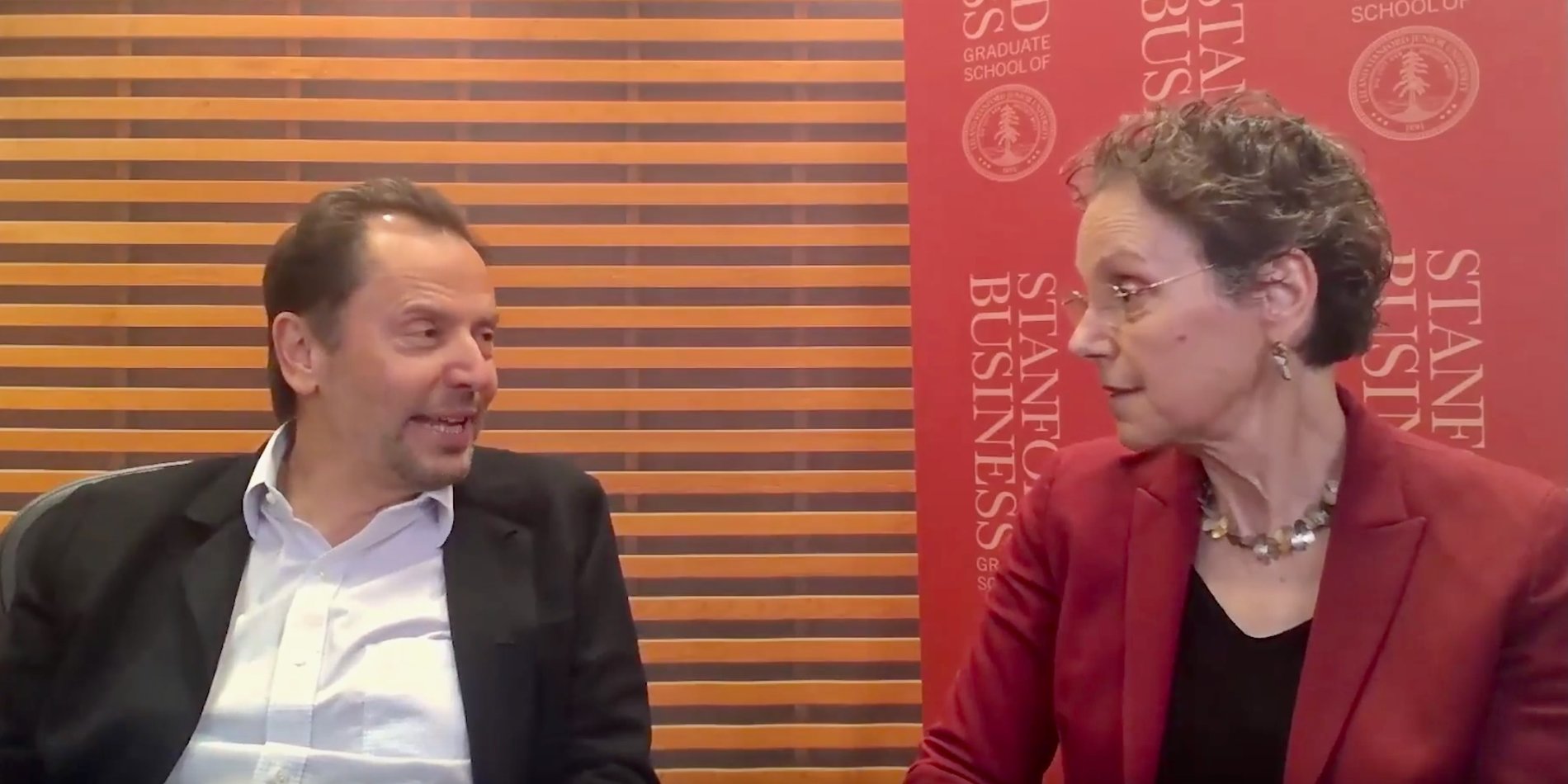Small Dinners, Big Ideas: Exploring Solutions Within Capitalism
Small group discussions are fertile ground for sharing ideas, debating pressing issues, and incubating change. During the winter quarter, students leaders from the Corporations and Society Initiative (CASI) organized a series of small group dinners to spark greater dialogue on contemporary issues. The informal atmosphere and selected topics served to introduce students to CASI’s mission and focus.
Kate Adams (MBA ’25) spearheaded a conversation centered around a pivotal and timely question: Are societal problems inherently linked to capitalism, or can they be solved within its boundaries? The discussion led to debates on various potential solutions, such as enhancing education, reforming campaign finance, adopting universal basic income, and replacing GDP with metrics that capture a more holistic view of societal well-being.
Similarly, Amira Hannon (MBA ’24) and Jack Shumway (MBA ’25) hosted a thought-provoking discussion on "How to Address Excessive Short-Term Value Prioritization." Driven by insights from Jeff Ubben, a renowned activist investor and guest speaker in Finance 207, the conversation explored roles that institutional investors could play in promoting sustainable corporate practices, ways companies could better measure their environmental and social impacts, and the potential of stakeholder capitalism to counteract short-termism.
Hannon and Shumway suggested recommended reading materials before the dinner, including insightful articles on short-term thinking in American business, the threats from climate change, and the evolving landscape of activist investing, to set the stage for informed and meaningful dialogue. The discussion ranged from the politics of carbon taxes versus cap-and-trade programs to the nuances of executive compensation and the potential impact of effective altruism on fostering long-term thinking.
A separate dinner hosted by Ryan Zepeda was held to discuss the topic of executive compensation on February 28th.
These student-led dinners underscore the complexity of the issues at hand and the multifaceted solutions required to address them. They also demonstrate that change often begins with a question, a conversation, and the willingness to listen and learn.




